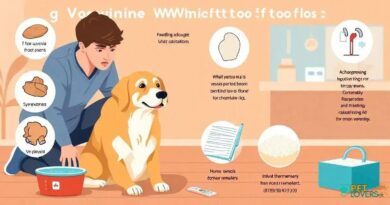What is Nutrition plans
What is Nutrition Plans for Dogs?
Nutrition plans for dogs are structured dietary guidelines designed to meet the specific health and wellness needs of canine companions. These plans take into account various factors such as age, breed, weight, activity level, and any existing health conditions. By tailoring a nutrition plan, pet owners can ensure their dogs receive the right balance of nutrients, vitamins, and minerals necessary for optimal health.
The Importance of Balanced Nutrition
A balanced nutrition plan is crucial for maintaining a dog’s overall health. Dogs require a mix of proteins, fats, carbohydrates, vitamins, and minerals to thrive. Each component plays a vital role; for instance, proteins are essential for muscle development and repair, while fats provide energy and support skin and coat health. Carbohydrates serve as a source of energy, and vitamins and minerals are necessary for various bodily functions.
Components of a Nutrition Plan
When creating a nutrition plan for dogs, several key components must be considered. High-quality protein sources, such as chicken, beef, or fish, should be included to support muscle health. Healthy fats, like omega-3 and omega-6 fatty acids, are important for skin and coat condition. Additionally, whole grains and vegetables can provide essential carbohydrates and fiber, promoting digestive health and overall well-being.
Customizing Nutrition Plans for Different Breeds
Different dog breeds have unique nutritional requirements based on their size, metabolism, and activity levels. For example, large breeds may need a diet lower in calories to prevent obesity, while active breeds may require higher protein levels to support their energy needs. Customizing nutrition plans according to breed-specific needs helps in preventing health issues and promotes longevity.
Age-Appropriate Nutrition
Age is another critical factor in developing a nutrition plan. Puppies have different nutritional needs compared to adult dogs and senior dogs. Puppy diets are typically higher in calories and nutrients to support growth and development, while senior dog diets may focus on lower calories and joint support. Adjusting the nutrition plan as dogs age ensures they receive the appropriate nutrients for their life stage.
Special Dietary Needs
Some dogs may have special dietary needs due to allergies, sensitivities, or health conditions such as diabetes or kidney disease. In these cases, nutrition plans must be carefully crafted to avoid allergens and provide the necessary nutrients without exacerbating health issues. Consulting with a veterinarian or a pet nutritionist can help in creating a safe and effective nutrition plan for dogs with special needs.
Commercial vs. Homemade Nutrition Plans
Pet owners often face the decision between commercial dog food and homemade diets. Commercial dog foods are formulated to meet nutritional standards and are convenient, while homemade diets allow for greater control over ingredients. However, it’s essential to ensure that homemade meals are balanced and meet all of a dog’s nutritional requirements, which may require guidance from a veterinary professional.
Monitoring and Adjusting Nutrition Plans
Once a nutrition plan is in place, it’s important to monitor a dog’s health and adjust the diet as needed. Regular veterinary check-ups can help identify any changes in weight, coat condition, or overall health that may necessitate modifications to the nutrition plan. Keeping track of a dog’s response to their diet ensures they remain healthy and happy.
Benefits of a Well-Structured Nutrition Plan
A well-structured nutrition plan can lead to numerous benefits for dogs, including improved energy levels, healthier skin and coat, better digestion, and a reduced risk of obesity and related health issues. By investing time and effort into creating and maintaining a proper nutrition plan, pet owners can significantly enhance their dogs’ quality of life and longevity.




